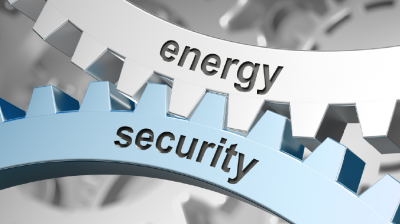Is Brussels less green with Commissioner Hoekstra?!
Wopke Hoekstra awaits a tough European Parliament (EP) hearing following his nomination as European Commissioner for Climate Action coming Monday. It is fair to ask whether the decision-making surrounding his nomination was legitimate and what other ambitions were at stake. However, perhaps more relevant is to see how the nomination fits in a context where Brussels prepares for the EP elections in June 2024. This illustrates how climate and nature policies could become central themes. The EP's largest political party, the European People's Party (EPP), likes to see Brussels less green.
Indeed, the nomination cannot be dissociated from a broader European debate about the primate of the European Green Deal. What was presented in 2019 as Ursula von der Leyen's Commission's overarching European growth strategy now meets resistance. We saw this during the discussion about the nature restoration law, and it displays a broader dissatisfaction. The transition towards a climate-neutral society in 2050 raises fears about the costs and inconveniences. Unrest is particularly emerging among the supporters of more conservative parties.
It has become clear that the European Green Deal is no longer sacrosanct for the EPP.
The rise of the Farmer–Citizen Movement (BBB) in the Netherlands, where many traditional Christian democratic (CDA) voters switched to a party that takes a more critical stance on European nature policy, was viewed with suspicion in Brussels. In Brussels, the Christian democrats have presented themselves as the 'European farmers' party' since May. This resulted in the EPP's resistance to new measures on pesticides and the nature restoration law, which party president Manfred Weber would have preferred to eliminate. Timmermans' nature restoration law narrowly made it through the EP when a proposal to send it back to the Commission was rejected by 12 votes. However, it has become clear that the European Green Deal is no longer sacrosanct for the EPP.
Hoekstra's nomination, therefore, fits well with von der Leyen's assumed desire to be re-elected next year and add five years to her presidency. Although it is up to the heads of state and government in the European Council to ultimately decide on the distribution of 'EU top jobs', von der Leyen also needs the support of her EPP. She remarkably defended green industrial policies in her recent State of the Union address, but equally so was her switch to German when addressing nature policies and expressing appreciation for farmers. By watering down the leadership of the climate post and moving it from the S&D (Timmermans) to the EPP (Hoekstra), she testifies to her party colleagues that she takes their concerns seriously, which will prove essential for their support for a second term.
All in all, the nomination shows the evolving dynamics in Brussels. In part, this is merely symbolic, as many climate policies have just been adopted.
On Monday, politically left groups will vigorously challenge Hoekstra during a hearing in the EP. Dissatisfied with losing the climate commissioner to the EPP, they will not be easy on Hoekstra. Giving Maroš Šefčovič (S&D) the vice-presidency and oversight of the Green Deal after Timmermans' resignation and holding on to Diederik Samsom (S&D) as Hoekstra's chief of cabinet are attempts to get at least the S&D to agree to Hoekstra's appointment. Nevertheless, it is clearly not a done deal yet.
All in all, the nomination shows the evolving dynamics in Brussels. In part, this is merely symbolic, as many climate policies have just been adopted. The change will mainly be about the hard edges of implementation and the tone the EU takes on the subject. On nature, though, there is more to do. For climate, there are still steps to take on the road to climate neutrality in 2050, among others on agriculture. Getting this sector and the European countryside on board in the green transition is challenging. An emissions reduction target for 2040 and policies to meet this are other hot topics, as a new climate package is expected by the Commission early next year.
The upcoming Dutch parliamentary elections will be meticulously followed by the Brussels Christian democrats now that both BBB and former CDA Member of Parliament Pieter Omtzigt's newly found party, New Social Contract, are polling much higher than EPP's CDA. While CDA's new front-runner Henri Bontenbal seemingly leans more towards green(er) policies, the EPP will assess whether parties ideologically close to Christian democracy explicitly oppose former European Commission Vice-President and so-called 'climate pope' Frans Timmermans and whether they will attract votes. Or will the primary attention go to other themes, such as cost of living and migration? Meanwhile, or perhaps only after the European elections, we will find out whether Rutte's own EU ambitions played a role in Hoekstra's nomination too, but that is for another day.
Camille van Hees and Louise van Schaik are Research Fellow and Head of Unit at Clingendael Institute.






